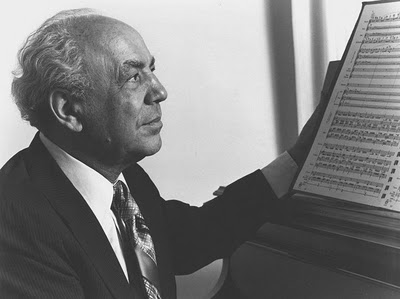The Chicago Ensemble serves up two rarities along with stormy Brahms

There are a myriad of chamber music groups in the city but very few that ever perform music of Paul Creston and Reinhold Gliere, let alone on the same program.
Gerald Rizzer, pianist and artistic director of The Chicago Ensemble, has been presenting offbeat chamber programs for more than three decades, mixing standards and rarely encountered repertoire. And while performances sometimes lack the last degree of technical finish, the balance is made up by the inviting atmosphere, enhanced by Rizzer’s informed, low-key verbal program notes and free snacks and homemade cookies to nosh on.
Sunday afternoon’s concert at the University of Chicago’s International House was a characteristically generous and wide-ranging affair, with music of Mozart and Brahms framing works by Gliere and Creston.
Unlike Haydn, Mozart did not write prolifically for piano trio and though his essays in the genre are late works, they’re predominantly light and galant in style.
Rizzer has a nice Mozart touch, intimate in scale and pearl-toned as shown in the opening performance of Mozart’s Piano Trio in E major, K.542 with violinist Mathias Tacke and cellist Andrew Snow. Still, the playing proved rather uneven with the final movement wanting in charm and sparkle, and Tacke’s wayward intonation doing little for the gracious melody of the Andante.
The continuing neglect of Paul Creston’s music by America’s leading music institutions remains a scandal. Born Giuseppe Guttoveggio in 1906, Creston composed prolifically and his music was a national concert-hall staple in the mid-20th century but has largely been shot out of the canon since.
That’s a shame since the self-taught Italian-American wrote a great deal of excellent music including six symphonies, many short orchestral works, several concertos and chamber works, and a staggering amount of piano and choral music. Perhaps Riccardo Muti might be interested in helping to revive the music of his semi-compatriot?
Creston’s Suite, op.13, for viola and piano is an early effort (1938), and while no great depths are plumbed, it shows the craft and melodic distinction that Creston could summon up even in a slight work.
Violist Paul Vanderwerf and Rizzer gave Creston’s Suite worthy advocacy, even if the closing Tarantella was taken at a rather cautious tempo. The musicians conveyed the charm of the Caprice section and the thoughtful, long-limbed theme of the Air—typical of Creston’s best slow movements—-was sensitively played by Vanderwerf.
Reinhold Gliere was among the vast torrent of Russian second-raters who had long and distinguished teaching careers yet remained competent composers without much individuality or distinction manifest in their music.
Gliere’s Duets, Op. 39, for violin and cello certainly fall into that category. While attractive and professionally written, the derivative suite of five miniatures more often suggest Gliere’s betters: Bach in the Gavotte, Tchaikovsky in the Intermezzo and Dvorak in the closing Scherzo.Tacke and Snow gave the work admirable advocacy, however, bringing out the pensive expression of the Prelude and the confiding rumination of the central Cradle Song.
There’s certainly no lack of strength or individuality in the closing work, Brahms’ Piano Quartet in C minor. Of his three piano quartets, Brahms’ Op. 60 was his last in the genre—though it utilizes material Brahms had written previously— and the generally turbulent, dark-toned work remains his least often played.
While at times one wanted greater ballast and a more imposing sonority, Rizzer and colleagues delivered an impassioned performance, alive to the stormy drama of the opening movement as well as the unsettled nerve-wracked expression of the Scherzo.
At times string intonation suffered under pressure, especially in the finale. But this was for the most part, an alert and engaged performance, at its best in the Andante. Launched with a burnished cello solo by Snow, the Chicago Ensemble members conveyed the melancholy introspection and judged the lyrical ebb and flow with fine sensitivity.
The program will be repeated 7:30 p.m. Tuesday at Fourth Presbyterian Church. chicagoensemble.org; 773-889-4206.
Posted in Performances




